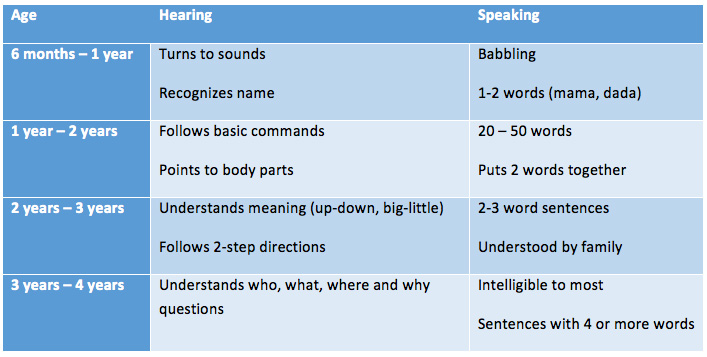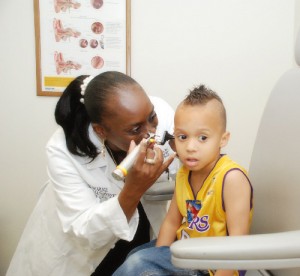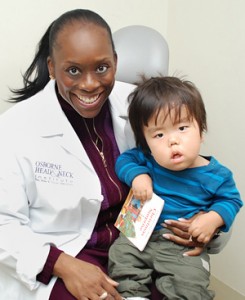- New Sublingual Allergy Tablets - October 31, 2014
- Ground-breaking New Treatment Option for Sleep Apnea - September 27, 2014
- Allergies versus Viruses in Children - September 27, 2014
- “Dog Dust” Protects Children from Allergies - September 27, 2014
- Nasal Saline Irrigation - August 8, 2014
- Doctor, I am Allergic to Dust. What Can I do? - July 31, 2014
- Infants Exposed to Dust Mites Less Likely to Develop Allergies - June 23, 2014
- How to Treat a Young Child’s Cough - December 17, 2013
- Many Parents are Unaware That Their Children Are at Risk for Noise Induced Hearing Loss - December 9, 2013
- Is it a Cold or an Ear Infection? - December 9, 2013
 How do I know if my child is speech delayed?
How do I know if my child is speech delayed?
Question: I have been a little concerned about my 2 year old son’s speech development. His friends that are the same age can say more words. My child seems to understand what I say, but he is not talking. He is very active and loves to play. He hasn’t been sick during his childhood. Should I be concerned?
How do I know if my child is speech delayed?
Discussion: If your child is not speaking by 2 years of age, he may be speech delayed. While every child develops speech at their own pace, there are age-related guidelines for how many words a child should be able to speak. If a child is not meeting appropriate speech milestones, there may be a medical reason for this. It is very important to have him assessed for correctable problems so that normal speech can develop.
Speech Development Milestones

Because speech milestones are quite broad, there are other signals you can use to let you know if you should be concerned:
- Your child is not responding to sound or vocalizing by age 1
- Your child is not following basic commands by 18 months
- Your child gestures (i.e., pointing) instead of speaking by 18 months
- Your child does not imitate sounds by 18 months
- Your child is not spontaneously producing words, combining 2 words, or you cannot understand your child 50% of the time by age 2
- Your child does not have a large vocabulary and is not understood by family 75% of the time by age 3
- Your child is not understood by most people by age 4
Speech delay is the most common developmental disorder, seen in 5-10% of preschool age children, but more commonly in males. Speech delay is diagnosed when there is slower than normal development of speech skills in the absence of another developmental disorder. When seeking evaluation for your child, it is important to note that speech delay and language delay are separate and definable disorders. Speech delay is a problem with the production of words including issues with articulation, fluency, and voice quality. Language delay is a global problem involving the understanding and use of words and gestures to communicate.

In all cases of suspected speech or language delay it is important to seek timely medical evaluation from a qualified pediatric ENT (pediatric otolaryngologist) to determine if there is a medical cause for the speech or language delay.
During your child’s evaluation a pediatric ENT will perform an examination of the ears, nose, throat, and voice. A hearing test is also commonly ordered to determine if hearing loss is contributing to the speech delay. Other, medical problems that can cause speech or language delay include:
- Recurrent ear infections
- Fluid in the ears (otitis media with effusion)
- Tongue tie (ankyloglossia)
- Enlarged adenoids (adenoid hypertrophy)
Ear infections or fluid in the ears is one of the most common causes of speech delay. If a child is unable to hear, this can cause difficulty with understanding as well as producing sounds and words. While hearing loss from ear infections is commonly temporary, recovery can take several months, during which the child should be hearing and developing speech. Unfortunately, these infections occur most commonly during the time in a child’s life that is most critical for speech development.
To encourage normal speech development in a child, there is a lot a parent can do at home. During infancy it is important to talk and sing to your child and encourage the imitation of sounds. Reading books with texture and pictures early in life is a good way to connect words and objects. Words and their meanings can be reinforced as you describe your every day activities in the house, shopping or while driving.
If you suspect that your child may be speech delayed, it is critical to seek early evaluation by a pediatric otolaryngologist. The delay may be reversible if caught early.



